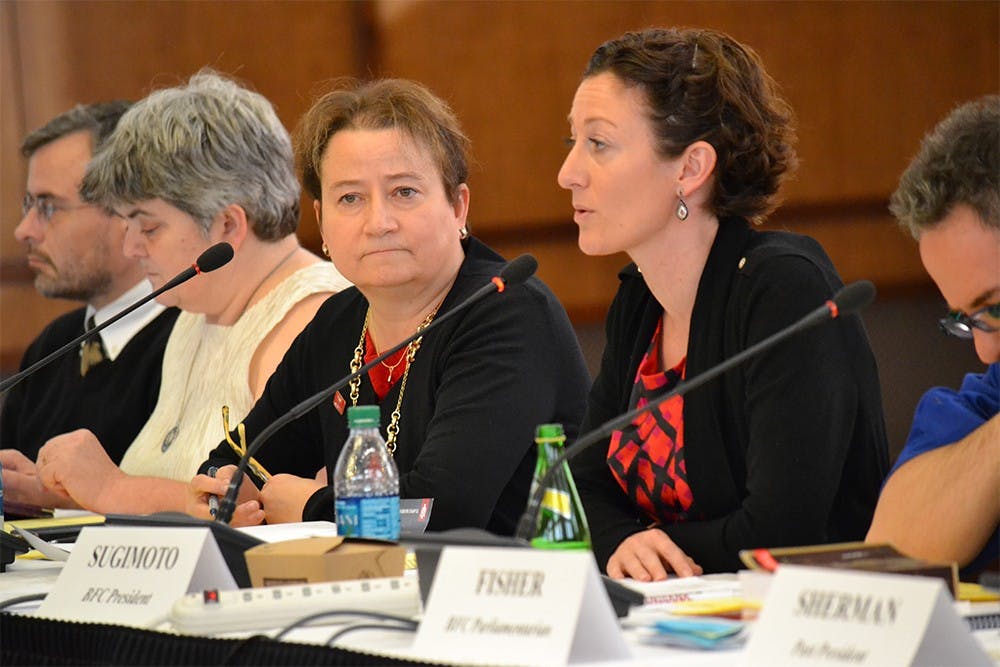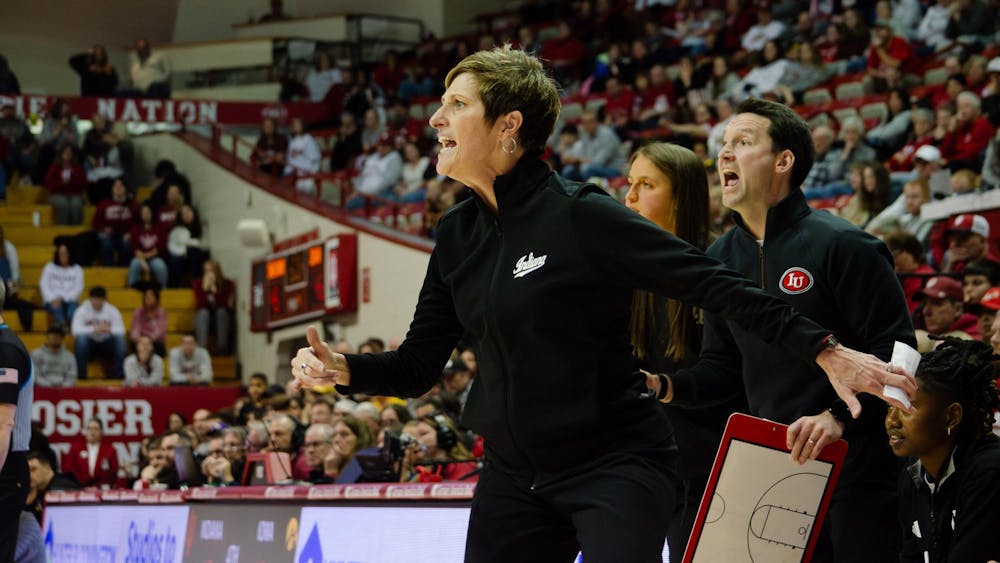The NTT Subcommittee is part of the Faculty Affairs Committee and was created in spring 2014 to address issues such as governance rights and working conditions for non-tenure track faculty members.
Although the circulated documents were not about policy, the presentation gave the council a chance to discuss the findings and recommendations the subcommittee had.
“The goal of the presentation today is for the subcommittee to present a high-level overview of the findings and present you with some provocations that may propose future policy items,” BFC President Cassidy Sugimoto said.
Non-tenure track faculty members are faculty members who do not take part in all three areas of research, teaching and service.
The subcommittee spent the 2014-15 academic year collecting information — including policies, surveys, data and task force reports — and doing group and one-on-one interviews with faculty, chairs and administrators, according to the agenda.
Ashley Clark, director of the Center for Survey Research, and John Walbridge, IU professor and co-chair of the NTT Subcommittee, gave the report.
Taking the findings from last year into account, the subcommittee presented the BFC with recommendations for non-tenure track faculty members.
The recommendations were divided into seven sections: context, titles and career paths, promotion and reappointment procedures for specialized faculty, governance, specialized faculty classification review committee, career support and quality of life and issues needing further consideration.
One of the first recommendations was using the term “specialized faculty” rather than “non-tenure track faculty.”
“Non-tenure track” creates negative feelings among such faculty members and led to perceptions that they are not considered full members of the faculty, Walbridge said.
“This is not unique to Bloomington,” Walbridge added.
Many of the recommendations focused on setting clear expectations and standards for specialized faculty members and their jobs.
The report began with facts and findings from the past year’s information collection.
The subcommittee found that as of fall 2015, of the 3,270 faculty members at IU-Bloomington, 1,311 were full-time specialized faculty.
This makes up 52 percent of the IU faculty and is a 53 percent increase since 2006.
Under qualitative findings, the subcommittee found the morale of specialized faculty is low and they feel like second-class citizens, according to the agenda.
They also found the criteria for evaluation, reappointment and promotion was unclear, and roles and rights for specialized faculty vary depending on schools and departments.
Throughout the discussion, many questions and recommendations arose from members of the council. These included why so many specialized faculty are being hired and the hope these recommendations would be taken slowly.
Although the recommendations are not finalized, the presentation allowed the council to discuss the findings with the subcommittee.
“I don’t think that anybody should ... we really shouldn’t see anything that’s a recommendation here as any kind of specific proposed policy,” said John Paolillo, associate professor of informatics. “It is not.”
The council also voted to pass changes to the bylaws. David Fisher, IU professor and chair of the constitution and rules committee, led the discussion before the vote was taken.
Although most changes were minor, one amendment was discussed more in depth. The amendment changes the way faculty are chosen to attend the University Faculty Council.
The president-elect, as well as eight chairpersons or co-chairpersons from specific committees, will be chosen to attend.






